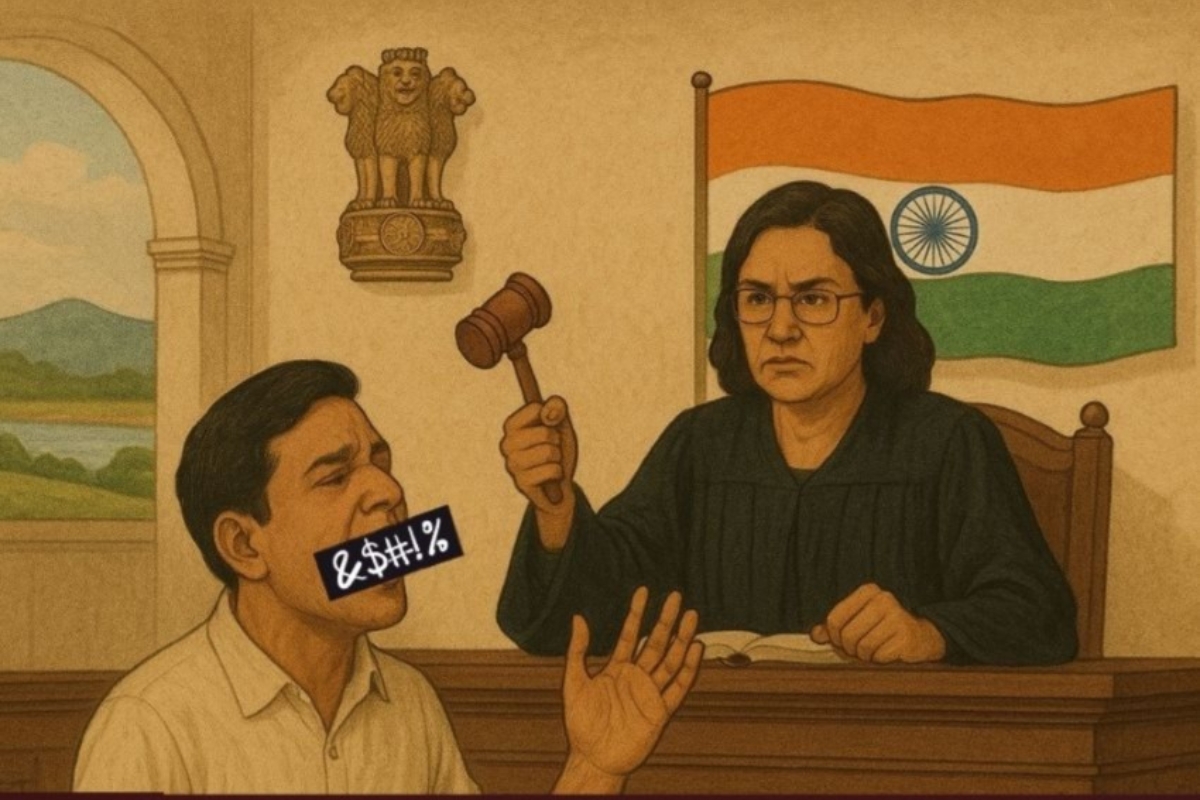The legal system stands as a pillar of justice, and any attempt to undermine its authority must be met with the utmost seriousness. In a recent ruling, the Bombay High Court made it clear that there are severe consequences for those who try to tarnish the reputation of the judiciary. This decision came after a woman, Vineeta Srinandan, was found guilty of criminal contempt for spreading a malicious and unfounded accusation that judges of the High Court and Supreme Court were part of a “dog mafia.”
The Controversial Circular That Sparked the Contempt Case
It all began with a circular that was circulated among over 1,500 families in a Navi Mumbai residential society. This circular, authored by Srinandan, claimed that a “dog mafia” existed in urban India and suggested that several judges of India’s top courts were sympathetic to it. The circular further alleged that these judges were ignoring the value of human life in favour of supporting the feeding of stray animals. Srinandan’s accusations were not just baseless; they were deeply offensive and dangerous to the credibility of the judiciary.

The Background of the Legal Battle
The timing of the circular’s distribution couldn’t have been more concerning. It was during the pendency of a writ petition filed by Seawoods Estates Limited, challenging certain provisions of the Animal Birth Control (ABC) Rules, 2023, which required residential societies to support the feeding of stray animals. In the middle of these legal proceedings, the controversial circular appeared, sparking anger and a strong response from the Bombay High Court.
The Bombay High Court Reaction to the Scandalous Allegations
Upon reviewing the situation, the Bombay High Court decided to take immediate action. The Court issued a show-cause notice for criminal contempt against both Srinandan and the residential society. While the society’s directors swiftly denied authorising the circular and offered an unreserved apology, Srinandan took a different route. She claimed she was pressured by other residents and did not intend to attack the judiciary. She also expressed regret for her actions and resigned from her position.
The Bombay High Court Verdict: A Strong Message to All
However, the Bombay High Court was not convinced. It viewed her apology as insincere, calling it a mere defence mechanism to escape the consequences of her actions. The Court emphasised that an apology lacking genuine remorse would not be enough to shield one from punishment for intentional contempt. The Division Bench, consisting of Justice GS Kulkarni and Justice Advait M Sethna, pointed out that Srinandan’s actions were part of a calculated attempt to discredit the judiciary, not an innocent mistake.
Upholding the Dignity of the Judiciary
The ruling sent a powerful message about the sanctity of the judiciary and the importance of maintaining its dignity. The Bombay High Court made it clear that attempts to scandalise the judiciary and obstruct the course of justice would not be tolerated, especially when they come from individuals who should know better. Srinandan, despite her apology, was sentenced to one week of simple imprisonment and fined ₹2,000. The sentence was suspended for 10 days, giving her time to appeal to the Supreme Court if she wished.
The Serious Consequences of Malicious Allegations

The Bombay High Court decision was a stark reminder that anyone, regardless of their education or social standing, can face consequences for deliberately undermining the authority of the judiciary. In this case, Srinandan’s remarks were not just a fair criticism but an intentional and malicious attempt to damage the credibility of the courts.
Disclaimer: The views and opinions expressed in this article are based on available information and the legal proceedings surrounding the case. This article is for informational purposes only and should not be construed as legal advice.
Also Read:
Delayed But Not Denied: Supreme Court Revives Claims Under Limitation Law
Uniform Civil Code is Not Just Law, It’s Humanity, Says Karnataka HC






